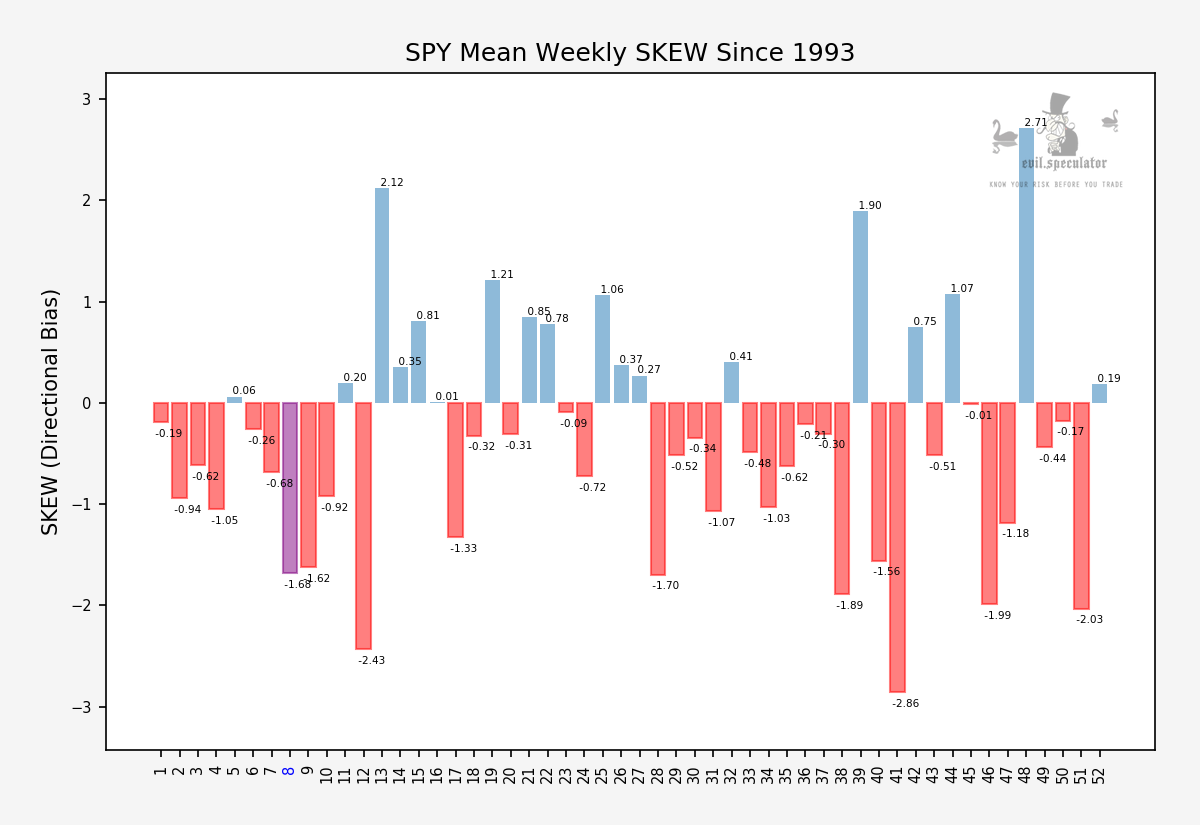A Trader’s Guide to Hedging Strategies – Part II
A Trader’s Guide to Hedging Strategies – Part II
Good to see you my reader. It’s nice that we’re both still here.
Part 1 of this series touched on plenty, but in detail covered almost nothing. Looking over the rough draft here, I’m afraid that’s not going to change much with this largely conceptual segment now.
Again, I’m knocking this out as I go and I really don’t know how many parts, how many pages and how many sacks of seal jerky will be consumed before we’re complete with this subject of protection and hedging.
Measuring Risk vs. Reward
You might expect a little math in this segment and we will actually touch on that some. For the time being though we’re going to have to a little chat instead. Let’s get warmed-up!
We’re all gamblers (certainly this crowd). And, like you, I was born a gambler. My game was easy then – pretty much rigged in fact; everything handed my way. Sure bet after sure bet – tit-to-mouth – I got used to success. BFD, right?
Right. Not sure myself what I’m talking about either. But safe to say that we can’t get through life, or even a day, without some amount of risk.
GAM.BLE: To stake or risk money, or anything of value, on the outcome of something involving chance.
Involving chance. Now chance may be a matter of personal opinion, but I’m going to argue a loose interpretation in order to make a point. It’s impossible to get out of check-mate in chess (no chance at all, since it’s not really check-mate if you can survive another move), but pretty much everything else involves at least some amount of chance. You might hold a winning lottery ticket (fat chance!), but there is still a chance you’ll screw that up before you turn it in and the money hits your account (and then there’s a much higher degree of probability you’ll screw up your life once it does).
What this means, you understand, is that traders are not the only gamblers in town. All those careers your mother wished you’d pursued instead – those were gambles as well! The stock market is for gamblers, sure; as is the bond market; as is setting up a stand at the farmer’s market; as is enrolling at Harvard Law school; the Vidal Sassoon School of Dentistry, etc. Each have different degrees of risk and different potential rewards, but all involve speculation, risk and of course, chance.
And after you graduate from that school of dentistry, as your patient I’m gambling as well. Drive-thru root canals have certainly come a long way, but I’m risking more than my time when I pull up to your window, if you know what I mean.
Fine. Everything’s a gamble. Good to get that out of the way. But what this means, is that your kind is at a bit of an advantage, since you know your career smacks speculation and you behave accordingly; while others with a more conservative vocation might live under the pretense that they are somehow safe; removed from the hysterics of our field.
I have to laugh.
I laugh because during the course of my career, the outside world has become more and more linked to the global markets; the very field the likes of which you and I subsist. More and more (and more), the population, their financial worth, their sense of well being and security, is directly tied to the speculative ebbs and flows juicing from the global markets – whether they like it or not.
It’s a bit like training your entire life to be a soldier and then the whole world is eventually at war – you are going to be better prepared for battle than the insurance salesman living next door, right?
As traders, we’re better prepared for a game of Global Monopoly – especially when the game blows out of control and rule books fly out of windows. Turns out – selling-short ideals and leveraging cynicism is a routine worth knowing after all.
Your mothers would be proud.
And don’t get me wrong, I’m not judging any of this as good. But even your neighbor senses by now that world markets have taken all of us to the casino. At least you and I have a bit of training; foolish gamblers we may be.
Let’s go ahead and take a page then from the casino model.
I mentioned in Part 1 that you want to flip a coin with 3-2 odds all day long, but it’s better to avoid collecting sea shells ahead of a Tsunami (don’t be a tsucker!). If I have a slight, mathematical edge, where I’m risking 1X in order to generate X+Y (or similarly, if I’m Risking 2X to make 1Y, but 1Y is worth 3X), then I want as many folks in seats as possible trying to beat me. And clearly, some will certainly beat me. My customers are a fickle bunch. They might sit for 2 or 10 rounds and folly-off into the night, never to be played again. I’ll never see that money again, in many cases. But while I’m prone to generating losses over short stretches of time, there’s no reason to cry. There is nothing improbable about me losing 3 times in a row, but let’s run this wager 30, 300 and 3000 times. If I have a mathematical edge it’s going to take the devil to stop me from taking these people’s money.
As a matter of fact, even though I stand to face horrible streaks of luck on occasion, we can model relatively accurately how much I am going to make per hour/per seat and the longer we run this, the more exact the results will reflect our estimate. The more we can determine we’re printing a profit of Z.
What if the bet size is not static? Good question. It’s going to change the math, but as long as we can run enough bets, my casino (I’ll name it Purgatory) is still going to come out ahead.
Embrace your inner loser – Try your luck…at Purgatory
Be careful not to get greedy though. We’re printing in small denominations in this example and trying to turn it into real money by means of higher volume.
But let’s say that through the smoky velvet entrance, with half a dozen beauties possessed by his side, there suddenly appears the biggest high-rolling whale known to the planet. Our gentleman walks in and announces he is going to place but one bet and one bet only. The wager he proposes is $100M.
Certainly exciting, yes. I mean these girls are wicked-cute. But I hope you’ve learned by now, that even though we have an edge on this guy (specifically, that we stand to make slightly more than we risk to lose, while our prospects of winning are a matter of a coin-flip), we don’t like this set-up.
Sure, if we can run his bet 100 times (1000 or even 10,000 preferably), we know from the math that we have a positive expectation value (+EV) and we’re going to take him apart (prying those beauties from his under-sized slacks). But this guy’s not quite that stupid. His inner loser is not interested in our free lunch. He’s made of billions and he wants us to risk it all, our entire venture of printing endless amounts of pocket change, just so he can get a hard-on and run these women upstairs to his suite.
We don’t want his money.
What what what? What kind of player are we? We’ve got an edge on this guy, the odds are on our side – and just look at that action!
You worry me. Here we are printing money and you you’re willing to risk the entire enterprise in order to slightly-likely take a giant leap forward? Absolutely not. Offer this guy our finest champagne and 7 glasses – on the house. Then go grab a cold shower or something, I’ll see you tomorrow. His money is no good here.
It’s easy to get caught up in the action, isn’t it? Especially if you’ve been grinding at something for some time. But you’ve got to keep your head. You’re a gambler after all (don’t forget your roots, young man). If you start acting reckless you will be destroyed, that’s no joke. I can make it funny, sure, since at the end of the day somebody else is holding your stake, flicking ashes on your grave while you cozy-down and situate yourself with the notion of NO action whatsoever. It’s game-over for the tough guy. You lived, you learned, you died.
A few of you think I’m exaggerating, but guess what? the majority here know it’s the truth. And the reason we know is not a matter of theory. We’ve been there, we’ve done that – we’ve blown the fuck up.
I don’t like blowing up.
And here is the sad truth. Nearly all traders will blow themselves up at some point in their career – even the greats. And while the strong traders will learn and get stronger, the mediocre (or worse) trader is going to blow himself up, quickly or slowly, forever over the course of their career (or for as long as they have a stake). Sure, the mediocre, conservative trader is not blowing-up so much, but deteriorating gradually instead. He’s too smart to blow-up in one bad month…he’s going to extend his demise over the course of several years.
Sick sick sick.
Most of you should just leave the industry right now; as that’s where you’re eventually heading anyway. Appreciate the lessons learned and leave with something still between your legs. You may not feel it so much at the moment, if you’ve been steadily and surely flaying yourself in the markets, but life is good and you’re still alive. Look on the bright side dumass.
It’s good to be alive. Don’t risk that in a stupid attempt on Gettting Even. When you’re dizzy – then get off the carousel and take a break. Don’t come back unless you have a better discipline than what you hold now. You’re up against super-computers which can theta-burn a wart off your right nut and because you are somehow determined, you’re willing to risk everything? Is that for self respect? I seriously doubt it. Self respecting types don’t punish themselves like you do. They’re not that sophisticated.
If I published a daily investor’s newspaper, I would do one thing for sure. I’d include a Metro section, and every day we’d chronicle someone (or some institution) who blew themselves up. Traders get very quiet when they blow-up, and yet everyone stands to learn a great deal (blow-ups included) by looking into and analyzing that disaster. The Metro section would help with this; keep us in touch with the many ways we self-destruct.
It’s a bit of a Catch-22 then, huh? The whole world’s a gamble now, so there’s nothing left career-wise which doesn’t hold a high degree of risk, and yet the majority of us are lousy gamblers. What’s a reasonable self-preserving person to do?
I wish I could help. I really don’t know what a reasonable person should do. I don’t believe you’re making bad decisions though, since every decision is an opportunity (whether to learn or to gain; as long as you’ve got a pulse). The key is to make the most of ones decisions – make them a positive. You may as well be confident. You may as well excel.
The rest of us though (gambling sots), we have no choice. We’re going to build a better discipline and we’re going to identify an edge with which to prosper – without allowing a random sequence of ill-effects to ruin us. We’re going to learn from mistakes (even if those entailed blowing-up – we’re going to recover and make these a positive when we’re ready to move on). We take one step forward and maybe one-step back. We take another step forward and perhaps that holds. Half a step back and then onward again in the forward direction. We’re walking, a little staggered, but we’re not falling down. If we stumble badly, we stop; regroup. Then, this is important, when the pace increases we need to be sure our direction is forward, or else we get out of the way. It’s okay not to profit from every opportunity. The biggest wave of the day may not be the smartest catch. Even if you enter it just right, the force may pummel you into the coral after the sexy elevator-drop, so make sure you are in-touch with that force or simply wait for another set.
Lock your doors at night. Don’t end up in the Metro section.
Everyone must develop their own discipline and I’m not the guy qualified to present an array of every successful approach. I can detail how I go about it personally, but keep in mind that we all need to build a strategy which works with our own unique personality, style, experience and approach; even if there are universal truths we might all share.
I personally want to build a position, slowly at first, and always with a mind of how and when to bail out (or attempt to neutralize at least), if the position begins to decline. As the position is successful, I’m willing then to build it larger (let out a larger line). When trading is a little rough, I want to reduce exposure. Add these together and I am going to have more at stake when trading is going well and less at stake when the environment sucks.
There are casualties, certainly, since inevitably I’ll wake up to a stock which is going to gap far above or below my stop-loss benchmark. If that never happened I’d only be printing money. Instead, I am printing money as best I can, doing my best not to risk the entire printing press and dealing with the individual set-backs as they present themselves.
On those days when something does blow-up, I prefer to take my lumps – I’m better in the end to blow it out. Even if I am good with damage control and patiently, artfully wait for the best graceful exit, the nasty little bastard is consuming me and I cannot properly focus on everything else – on making money! And then there are the times when attempting that graceful exit only mires one deeper and deeper as the disaster digs only deeper (it happens – some of these debacles take a rather direct course all the way to zero). So for all the combined reasons, I just want to unload problems and focus on what’s working (regrouping first if necessary).
Blow-out losses before they have a sufficient chance to debilitate you. Cut the cancers and move on with life.
The casino model is a good model. It holds a definable edge and no one bet, or succession of bad bets, can take the house down. If I’m running trades which I can determine as profitable running them out a 1000 times, whereby my potential reward outweighs my defined risk, then I only need to be on the right side of the overall market trend and I’m printing money. A really wise investor will just wait for these moments and run all-out in an environment like that; while running idle to the sidelines otherwise.
If I’m in rockier times, running a line of 5, 10 or 15 positions may still be doable, but I’ve got to have some protection; or at a minimum I’ve got to know how to hedge-off and neutralize my stable of lovelies once I’m caught against the current. From a more neutral position I can begin then to shrink, bailing out of the bigger problems as they become best defined; or else weather the storm and unload the hedge then if everything is surviving instead.
There is an art as far as how much to do what (in every regard). But that is what you hope to have gained by all this studying of all these markets; all your previous experience, good and bad. Assuming you have learned from endless observation (and the corpses from your trading past), then it is only a matter of mastering a discipline which best utilizes what you know.
Easy game, right? That’s enough for Part II.
Homework: Ask yourself some tough questions and determine if you are using a measured, disciplined approach or if you are flying more by the seat of your pants. Are you learning and getting stronger due to failures, or are you on a set-course to eventually blow-up? Either way, do something to better your approach; or walk away now. No decisions on this are necessarily wrong (as success is usually fine and losing is the best great teacher), but it is up to you to make your choices profitable in the long run.
Previously in this series:
A Trader’s Guide to Hedging Strategies – Part 1
A Trader’s Guide to Contractions
A Trader’s Guide to Sipping Kool Aid
Losing Like a Winner: A Trader’s Guide
A Trader’s Guide to Secondary Offerings (Part 2)
A Trader’s Guide to Secondary Offerings (Part 1)
A Trader’s Guide (Introduction)
A Trader’s Guide to Chasing Ambulances
A Trader’s Guide to Exhaustion
















